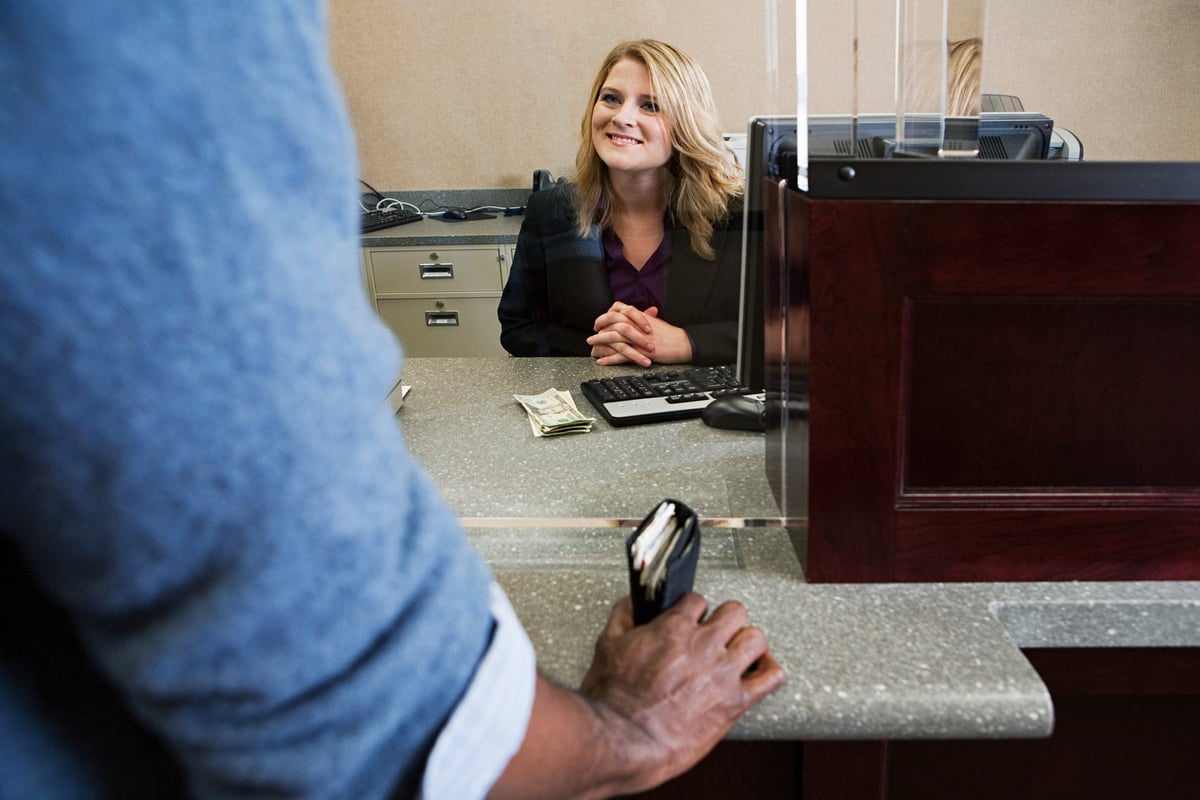If you’re like most people, you use a bank account for your everyday transactions. Ideally, you’ll pick a great bank account, like these top-rated checking accounts that charge few or no fees, offer perks like overdraft protection, and make it easy to access your money with large ATM networks.
Some day, there may come a time when you decide to make a large deposit at your bank. If that happens, and your deposit totals $10,000 or more, you may be surprised to discover that this transaction is a little more complicated.
Here’s why a deposit of $10,000 or more could be different than when you make smaller deposits.
Want to maximize the interest you earn on your large deposit? Click here to see our recommended list of the best high-yield savings account picks, chosen by our experts.
Our Picks for the Best High-Yield Savings Accounts of 2024
|
American Express® High Yield Savings APY 4.10%
|
APY 4.10%
|
Min. to earn $0 |
|
Capital One 360 Performance Savings 
APY 4.10%
|
APY 4.10%
|
Min. to earn $0 |
|
CIT Platinum Savings 
APY 4.70% APY for balances of $5,000 or more
Min. to earn $100 to open account, $5,000 for max APY
|
APY 4.70% APY for balances of $5,000 or more
|
Min. to earn $100 to open account, $5,000 for max APY |
Banks may want more details from you if you make a large deposit
If you go to the bank with a deposit of $10,000 or more, you may find that the bank doesn’t just accept your money and give you a receipt. Instead, you might be asked some extra questions, like to confirm your Social Security number or your current address.
The bank isn’t just being nosy if they inquire about these things. It’s collecting information it will need to send to the federal government. The Bank Secrecy Act requires financial institutions to report certain transactions totaling $10,000 or more. The goal is to prevent money laundering and tax evasion by collecting these details.
While answering these questions could be a little bit of a hassle, don’t try to avoid them by breaking up your big deposit into smaller ones. That’s called structuring, and it’s illegal even if you earned the deposited money legitimately. The bank is almost certain to realize what you’re doing and file a Suspicious Activity Report. This could trigger an investigation by the Feds.
What should you do with a $10,000 deposit?
If you don’t want to break up your big deposit to avoid extra inquiries, what should you do?
The answer is pretty simple. You should deposit the money and answer the bank’s questions. The reality is that unless you actually did launder the money or are planning to commit tax evasion, you won’t get in trouble for putting money in your account.
Banks have an obligation to keep your information secure, so there’s no real risk in providing them the information they need. They’ll take care of filing the required paperwork and you can go on with your life.
You should also make sure you’re depositing your $10,000 in an account that will provide you the most benefits since that’s a big chunk of change. If you won’t be spending the money right away, you may not want to put it in your regular bank account. Instead, consider putting the money into one of the best high-yield savings accounts or money market accounts where it will earn interest and continue to grow over time.

